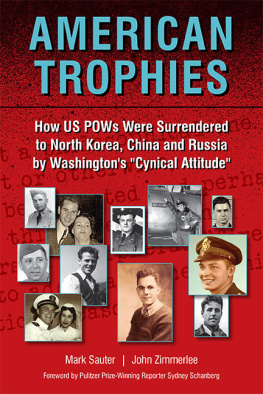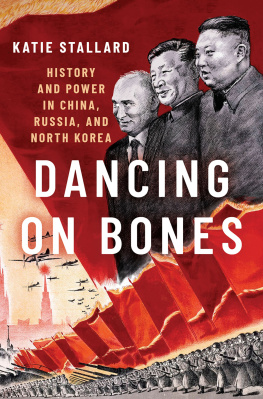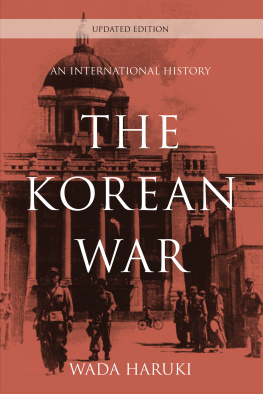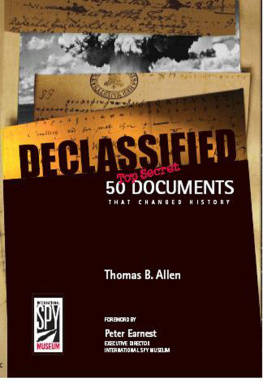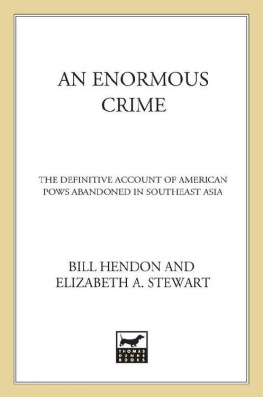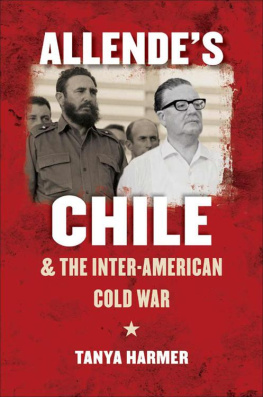AMERICAN TROPHIES
How American POWs Were Surrendered to North Korea, China, and Russia by Washingtons Cynical Attitude
Mark Sauter and John Zimmerlee
Foreword by Pulitzer Prize-Winner
Sydney Schanberg
Copyright 2013 by Orcinus Solutions, LLC and John Zimmerlee
ISBN-13: 978-1491038987
ISBN-10: 1491038985
All rights reserved. No part of this book may be reproduced or transmitted in any form or by any means, electronic or mechanical, including photocopying, recording, or by an information storage and retrieval systemexcept by a reviewer for the purposes of a book review onlywithout permission from the author.
Table of Contents
Foreword
For nearly a century now, our government has told us that when wars come to an end the return of American prisoners held by our adversaries becomes a matter of the highest national priority. But in the last two major conflicts, the Korean War and the Vietnam War, large numbers of American prisoners in the hundreds were not returned. Though the evidence of these crimes is monumental, our government has never told this to the American public. Instead, Washington has simply covered it up and the timid mainstream press has done the same.
This impressive investigative book, American Trophies: How US POWs Were Surrendered to North Korea, China and Russia by Washingtons Cynical Attitude, by Mark Sauter and John Zimmerlee challenges the US governmen t s claim that no American POWs were knowingly left behind at the end of the Korean War in 1953. The two authors have spent many years putting together this book -- Sauter because he had served in the military in South Korea after the war and Zimmerlee because his Air Force father had disappeared in 1952 and was never returned. The heart of this book is found in the records, film, photos, witness statements, and previously secret reports uncovered by the authors, along with the vast database on specific POW/MIA cases Zimmerlee has compiled over the years. The evidence they have gathered makes Washingto n s denial of unreturned POWs seem ridiculous.
This is not the only time that Washington has knowingly left POWs in enemy hands -- and denied it. It happened after the United States signed a flawed peace treaty with North Vietnam in 1973. Hanoi returned 591 US POWs. Our military and intelligence agencies showed there were at least 300 -- and likely more -- still in captivity. Washington then issued the same hollow denial and it still stands today.
Having covered the Vietnam and Cambodia conflicts, that falsehood led me to dig into, and write about, the POW story. A pivotal part of the story was the role of Laos, a nation bordering on North Vietnam that had joined the Hanoi Communists and had admitted holding hundreds of American captives.
In the early 1990s, a special Select Senate Committee was created, supposedly to get at the truth about unreturned soldiers from wars that took place earlier in the century. But instead of investigating the responsible agencies (the Pentagon, CIA and NSA), the committees chairman, then Massachusetts Senator John Kerry and his sidekick, Arizona Senator John McCain both Vietnam veterans -- treated those agencies as partners, keeping them closely informed about what evidence had to be hidden from the public and the press. It barely touched upon the large number of men taken prisoner and gone missing during the Korean War and the strong evidence that many of them had been held back as well. The panels final report was a whitewash, concluding flatly that only a handful of Vietnam POWs may have been left behind in 1973 and that, if so, it was unlikely that any of them was still alive. Senator McCain, seeking public attention, made this ridiculous sum-up: There was evidence, but not proof.
During this process, McCain pushed legislation through Congress that made it more difficult for families or any citizen to get information about men still missing. That strikes me as anything but the highest national priority. It also makes the task of investigative historians such as Sauter and Zimmerlee that much more difficult, but they have completed this fascinating, disturbing and important book nonetheless.
-- Sydney H. Schanberg; New Paltz, New York, July 4, 2013
About Sydney Schanberg
Sydney Schanberg was awarded the Pulitzer Prize for his coverage at great risk for The New York Times of the fall of Cambodia to the fanatical Khmer Rouge in 1975. The Death and Life of Dith Pran, a chronicle of his search for his captured Cambodian colleague Dith Pran, and Prans escape to freedom, was published in The Times Magazine in 1980 and later became The Killing Fields , an Academy Award-winning film starring Sam Waterston as Schanberg.
After returning from Asia, Schanberg was named Metropolitan Editor of The Times and then became an Op Ed columnist writing about New York, in particular about abuse of power, government corruption and special treatment for the citys power brokers. After The Times discontinued the column in 1985, Schanberg spent nine years as an Op Ed columnist for New York Newsday , worked as head of investigations for APBNews.com, and wrote press criticism and investigative pieces at The Village Voice .
Beyond the Killing Fields , an anthology of his reporting and commentary about wars in Bangladesh, Vietnam, Cambodia and Iraq was published in March 2010 by Potomac Books. He lives with his wife, Jane Freiman, in New Paltz, New York.
Introduction
The problem becomes almost a philosophical one. If we are at war, cold, hot or otherwise, casualties and losses must be expected and perhaps we must learn to live with this sort of thing. If we are in for fifty years of peripheral fire fights we may be forced to adopt a rather cynical attitude on this (the POWs) for the political reasons.
Previously Classified 1955 Pentagon Report
There is a law in the (Communist) Archipelago that those who have been treated the most harshly and who have withstood the most bravely, the most honest, the most courageous, the most unbending, never again come out into the world.
Aleksandr Solzhenitsyn
Harry Moreland escaped from his mountain prison in enemy territory, China claims, with both legs amputated. After a frowning photo of Sam Logan went around the world, he disappeared. Gerald Glasser wrote home to order a new Studebaker car; soon after, he was taken away in a jeep by Chinese officers. After angering guards, Richard Desautels begged a fellow POW if he should disappear to make inquiries concerning his whereabouts with the proper military authorities. When he failed to return, Beijing claimed Desautels too escaped, before switching to an even bolder prevarication. Heavy seas beached Lloyd Smith and William McClure in China, straight into a massive manhunt. A Soviet officer gave first aid to an American pilot, only to order him and his plane shipped to the Soviet Union, along with other US POWs. One reportedly became Our American, a captive instructor at a Soviet military school outside Moscow. North Korea held Gilbert Ashley and four crewmen at wars end. The US military radioed a demand to return them: Communists cannot plausibly deny you are alive and must arrange your exchange. They never came home.

Major Sam Logan: Vanished After This Picture
American Trophies: How US POWs Were Surrendered to North Korea, China and Russia by Washingtons Cynical Attitude tells the stories of these and many other Americans captured during the Korean War and never returned. Some were POWs last known alive in enemy hands but never released or accounted for. Others simply disappeared.
Why do we say Washington surrendered the men due to a cynical attitude? The Pentagon itself, in a previously secret memo you can read below, suggested its Korean War POW policy should reflect a cynical attitude. As for surrendered, our research demonstrates the US government, over many Administrations, failed to take aggressive, unrelenting action to recover missing Americans, or their remains, in enemy hands after the Korean War. To us, this conceded the men to our adversaries, a form of surrender.
Next page
